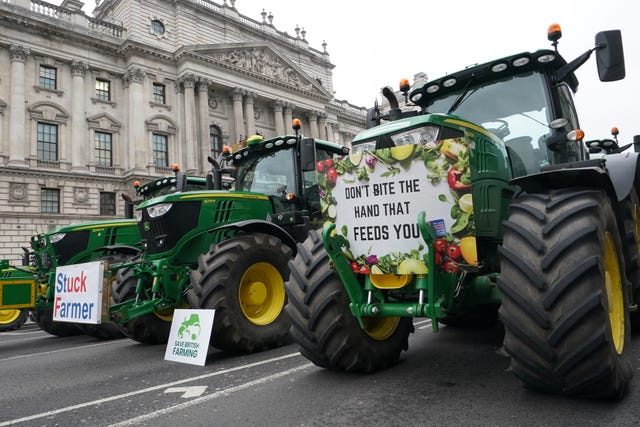Starmer insists farming is ‘top of the agenda’ for the Government
It was reported last week that Defra minister Daniel Zeichner told a rural conference that farmers are ‘not high on the pecking order’.

Sir Keir Starmer has insisted “farming is top of the agenda” for the Government.
It was reported last week that Environment, Food and Rural Affairs minister Daniel Zeichner told a rural conference that farmers are “not high on the pecking order” for the Government.
On Monday, a tractor rally descended on Parliament Square, organised by Save British Farming, as their campaign against the new tax rules continues.
Labour has insisted it will not make a U-turn on its plans to introduce a 20% inheritance tax rate on farms worth more than £1 million.
The changes announced in the Budget are due to come into force in April 2026 and scrap an exemption which meant no inheritance tax was paid to pass down family farms.
In a Westminster Hall debate, Labour MPs called for “meaningful tweaks” to planned the inheritance tax on farmland.
During PMQs on Wednesday Conservative MP for Gordon and Buchan, Harriet Cross, asked if “given the heartless family farm tax” did Sir Keir think Mr Zeichner is “correct”.

Sir Keir said: “Farming is top of the agenda as far as I’m concerned, that’s why we put £5 billion to support farmers in the budget.
“They failed to spend £300 million on their watch on farming and we set out our road map, which has been welcomed by the NFU (National Farmers’ Union) as she very well knows, it was described as long overdue.
“I wonder who didn’t do it before?”
In September, the Government revealed the previous Tory government had underspent on the farming budget in England by £130 million in 2023/24, £103 million in 2022/23 and by £125 million in 2021/22 – a total underspend of £358 million.





